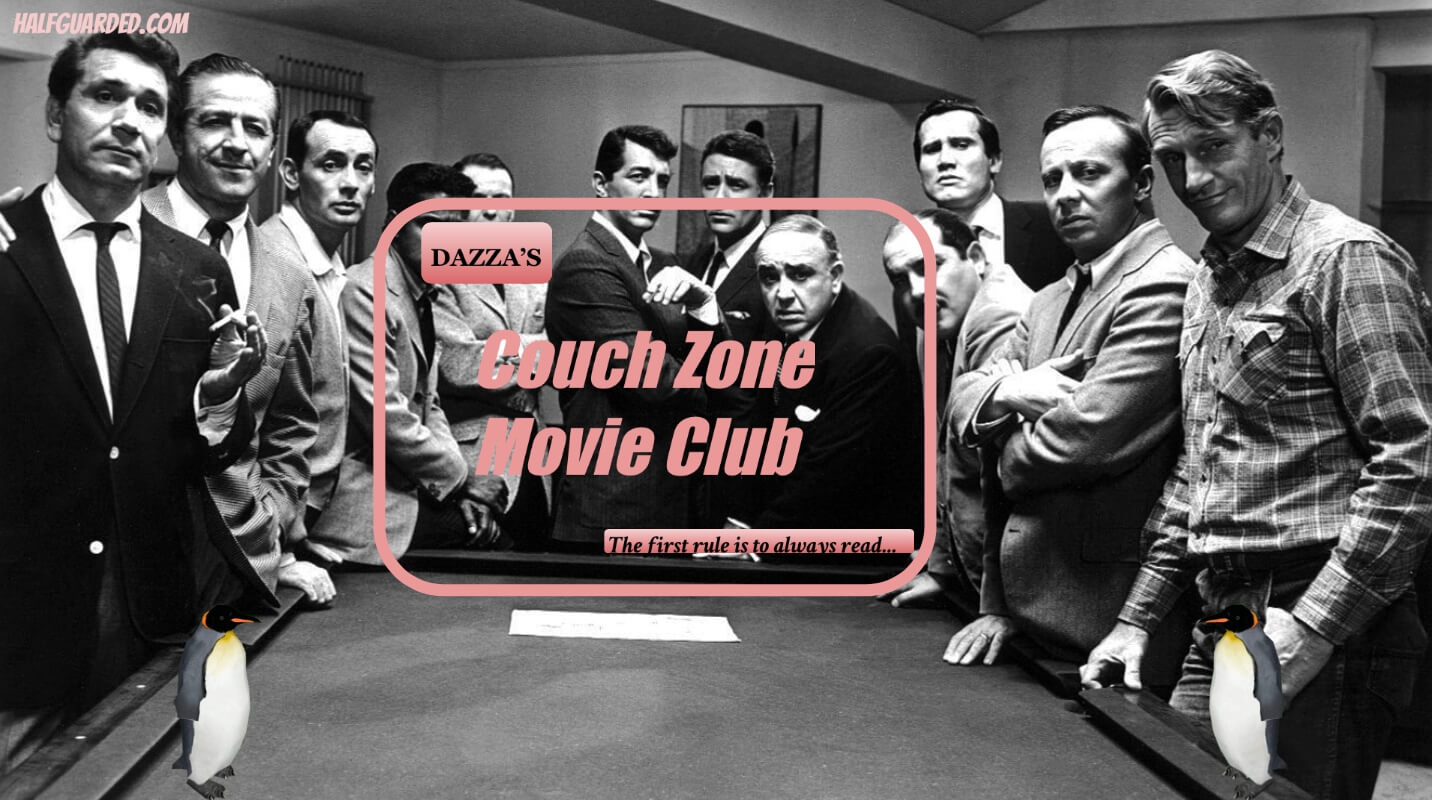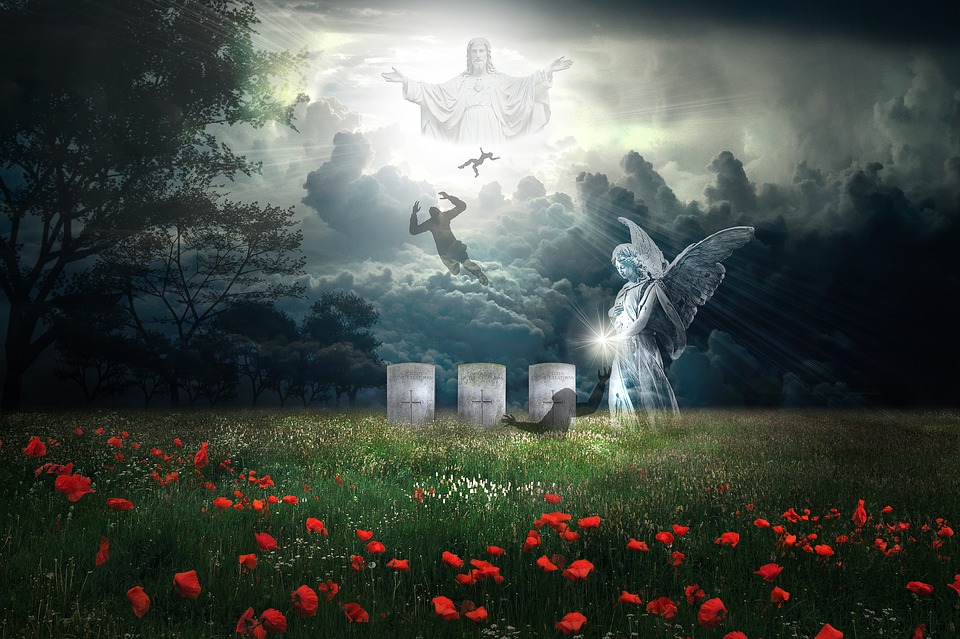It’s the sixties. Let’s all have orgies, take LCD, ban the bomb and burn our draft cards…..man! (Mike: I HAVE WAITED ALL MY LIFE TO HEAR THIS!)
Same rules as always. I’ll be picking three movies from a five year period in movie history (this being 1960-64) which aren’t necessarily the best (far from it) but are ones that mean something to me personally.
In the interests in balance, karma, zen, yin yang and all that stuff I will be picking a WTF moment focusing on something bad, inappropriate or just entertainingly bizarre.
The Magnificent Seven (1960)

Hear the word remake today in relation to movies and eyes will roll, groans will be heard and complaints aimed on Hollywood for their creative bankruptcy and cynical cheap cash ins. But there was a time when there was a legitimate purpose behind remaking a movie, such as the wave of Japanese Samurai classics being converted into their cultural counterparts the Western for American audiences. In such cases the remake would work so well it could end up with a movie even more enjoyable than the classic it was based on.
Case in point for me is here in the incredible The Magnificent Seven a direct copy of Kurosawi’s 1954 epic Seven Samurai. Great as it is Seven Samurai is a film and one I appreciate I couldn’t sit through it’s methodical three and half hours ever again. The Magnificent Seven on the other hand I will end up watching several times a year and if I catch just the opening bars of that uplifting, triumphant opening score, that’s it I’m set for the next, massively more comfortable two hours.
The first of my many viewings of Magnificent Seven was one Christmas Day sometime before 1980. I know it was before 1980 because when I saw Battle Beyond the Stars that year I remember recognising that they’d duplicated the story and concept of peaceful villagers recruiting seven gunfighters of various personalities, skillsets and reasons for fighting to protect their village from a tyrannically bandit exactly.
And what a lineup of stars we have Yul Bryner, Steve Mcqueen, Charles Bronson, James Coburn, Robert Vaughn that young one and the other one who no one can remember facing off against bandit leader Eli Wallach who is just relishing in the nasty, villainous role.
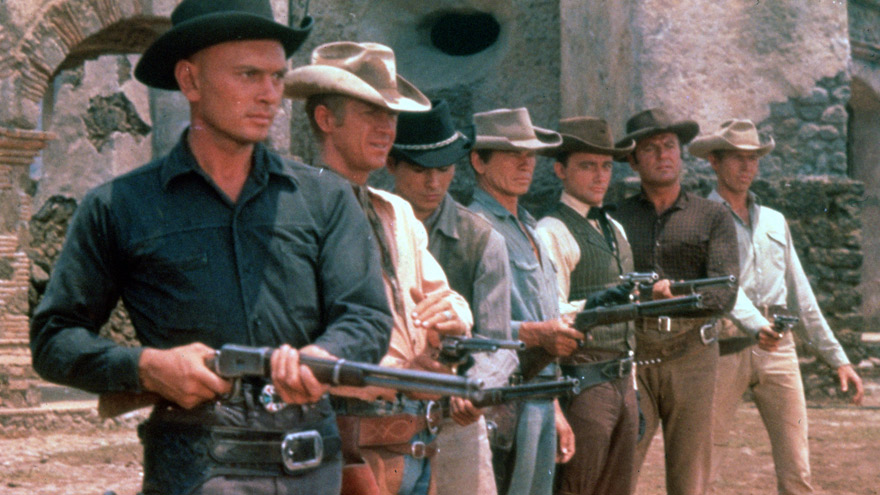
The Magnificent Seven takes the heroism and moving sacrifice of Seven Samurai and adds a fun sense of adventure, humour with cool, macho, colourful characters to provide a glorious looking western. No where is this more evident than in the scene where we meet the first two recruits in Chris Adams (Bryner) and Vin Tanner (McQueen) as they step in to escort the corpse of an Native American vagrant up to a small town graveyard and facing off against the armed locals who object to the body being buried there.
The scene is a feel good triumph from start to finish. Beginning with the banter between the undertaker and the well meaning salesman who has funded the funeral as to why they can’t bury the corpse for fear of attack from the local racist thugs.
Undertaker:
I don’t like it, no sir. I’ve always treated every man the same: just as another, future customer.
Henry:
Well in that case, get that hearse rolling.
Undertaker:
I can’t, my driver’s quit!
Robert:
He’s prejudiced too, huh?
Undertaker:
Well, when it comes to a chance of getting his head blown off, he’s downright bigoted.
Then with a delighted audience following ,Chris and Vin drive the body up to the hill to the graveyard, calmly fighting through snipers even when Vin has his cigar shot while in his mouth. It’s a great heroic moment that sets the tone and fun for the rest of the movie.
For all the fun there is also a sombre subtext to the movie. It’s clear from the introductions of Chris and Vin that their roles as professional gunfighters is coming to an end, with little work available to them in this world as it becomes more “civilised.” Each recruit has a sense of being a loner and outsider, broke either in mind, body or fortune, putting themselves in danger for a paltry payoff which is irrelevant because you get the sense that their main motivation to join the fight is because they have no where else to go.
It results in one of the most poignant endings to a film in Hollywood history. With four of the seven dead and the young Chico who joined the campaign with dreams of making his mark as a gunfighter returning to life as a farmer, it leaves only Chris and Vin to ride off taking time to observe the gravestones of their comrades and Bryner delivering the line lifted directly from Seven Samurai “Only the farmers won. We lost. We always lose.”
All the seven are Magnificent (ahem) in their roles, each brimming with charisma and owning the screen when they are on it. Especially notable is the chemistry between them all, particularly with Bryner and McQueen. However those same personalities clashed behind the scenes. Bryner and McQueen were constantly trying to upstage each other on screen (for what it’s worth McQueen steals the film in my opinion) Bryner even resorting to standing on dirt to make himself a little taller.
Bryner was sure to make sure no such antics would occur in the sequel “Return of the Seven”, as he insisted McQueen be replaced (the role going to Robert Fuller), and the rest of the new seven are a poor replacement for the originals both in terms of star power and characters. “Return of the Seven” is abysmal and done clearly on the cheap (the original movie was not a box office success and only made a profit because of European attendance). Two more sequels were slightly better but the new recruits fell increasingly into the realms of gimmickry while the plots were almost identical film to film.
But those sequels are easily forgotten. The true saga of the Seven is right there, beginning and ending in that one magnificent stand alone movie.

Ocean’s Eleven (1960)
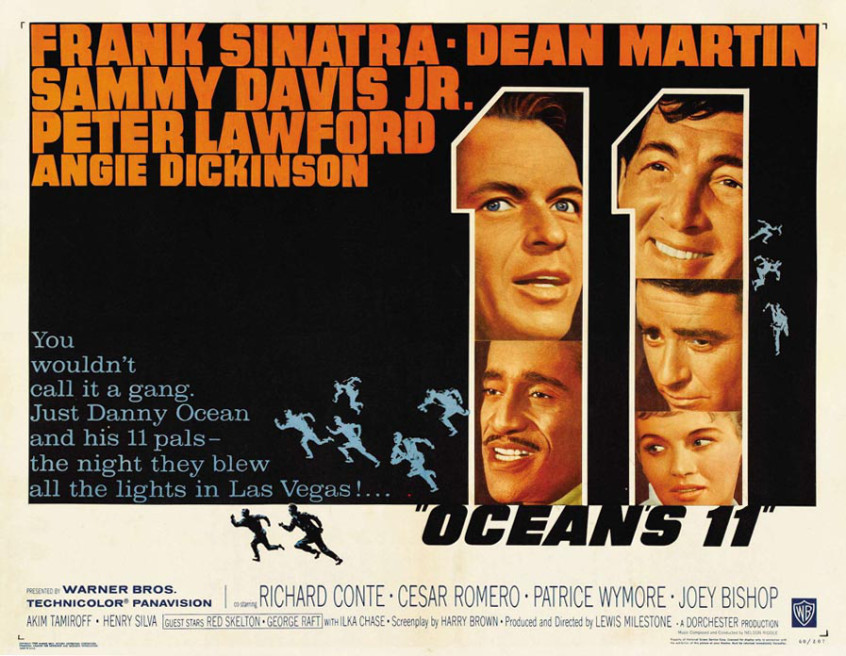
I admit that some movies I promote in Couch Zone Movie Club are not necessarily great movies.
Sometimes they’re not even what you can consider “good,” in fact you could even make an argument that some of them can quite reasonably be deemed to be “bad.”
Fortunately I don’t put much stock in if a movie is “good” or “bad,” what matters is the enjoyment or emotional connection I can reach with a movie. Which is why I can take a movie to my heart and get a real kick out of it despite deep down knowing it’s not really a “good” movie.
Like with the original Ocean’s 11 movie, not the one with George Clooney and Brad Pitt robbing a Vegas casino. No this is the one in the 60’s with several Las Vegas casinos being robbed by none other than the motherfucking Ratpack baby.
And that’s what clouds my judgement on this film. Because it’s a mess of a film, the plot is all over the place, the scheme to rob the casinos lacks the drama and tension and ingenuity of the best heist movies and at times the acting and dialogue threatens to be toe curling cringe. But I overlook all that because I adore the Ratpack so much.
Frank Sinatra, Sammy Davis Jnr, Dean Martin and erm some other guys. I love the Ratpack. Whenever the many touring Ratpack tribute shows perform nearby I have to go, especially if it’s one of the glorious feelgood Christmas shows (it doesn’t feel like Christmas unless I’ve seen a troupe of singers impersonating long dead film stars singing Have Yourself a Merry Little Christmas). I love their style, their class, their lust for life and the decadence and sheer indulgence they represent.

And in many ways Ocean 11 is the perfect representation of all that the Ratpack stood for. The motivation behind the making of it was less to make a coherent hit film but to give the Ratpack a chance to meet up in Vegas in one of their “Summits” and party and hang out at the Sands for five weeks all on Warner Brother’s dime. Sinatra used his position as producer to get all his buddies roles at inflated fees and nice bonus cuts of the profits, along with pulling for some nonsensical musical numbers of Martin and Davis (but hey I enjoyed them). With all the gambling, booze and various other Vegas distractions filming unsurprisingly did not run smooth, with director Lewis Milestone having to work around what Ratpack members he could get together at any one time. Likewise a revolving door of writers meant the story was all over the place, with scenes been planned on the fly and Milestone giving up on getting his cast to learn the script instead resorting to cue cards.
To his credit Milestone managed to bring the film under budget and was rewarded with directing Marlon Brando in Mutiny on the Bounty, the experience of which made him quit film directing for good.
The finished film is little more than a self indulgent Ratpack home movie. But It’s such a blast to watch because you can tell they are having such a great time making it. And I find that enjoyment totally infectious.
Naturally most people know Ocean’s Eleven by it’s more successful and much better remake (see another remake that’s better than the original). This spawned the sequel Ocean’s 12 which is utter, nonsensical shite and in turn led to the brilliant but underappreciated finale Ocean’s 13. Soon there will be a men’s activist triggering all female spin off Ocean’s 8.
But none of them have got the Ring-a-Ding-Ding of the original.

Jason and the Argonauts (1963)

This one is another in the list of Bank Holiday movie staples from my childhood. Christmas and Easter, this film always seemed to find a way into the television listings, sometimes sitting in an inspired double bill with one of the Sinbad movies (The seventh voyage of Sinbad was my favourite and I missed the chance to write about it as it was made in 1958 and truthfully I much prefer it to this film but never mind).
Although I’ve seen Jason and the Argonauts about ten times I remember very little about half of the movie. Jason is pretty much a non descript hero who I wouldn’t be able to pick up from a police line up, ditto his Argonauts who are all pretty generic guys in cloths except for Hercules who disappears half way through the film. The quest they are on is equally unmemorable, some shit about a mission from the Gods to find this Golden fleece thing for…I don’t really know why, it’s based on some Greek legend or something I think.
So what do I actually remember fondly about this film? Simply put, the genius that is the special effects and stop motion work of Ray Harryhausen.

When watching this movie you’re waiting for the next scene to feature Harryhausen’s work. Whether it’s the giant statue of Talos that comes to life and attacks the Argonaughts, or the winged demons that torment an old man for somehow pissing off the Gods or the seven headed serpent creature Hydra that defends the Golden Fleece, the stop motion has a smoothness and charm that is mesmerising and far more engaging than the coldness of CGI. Because of the cost and time of stop motion, Harryhausen does not waste a second of it. Every scene, segment, every movement has a purpose. It doesn’t have the realism of CGI, but for breathing and expressing life in these monsters it’s captivating.

But the film stealing scene comes right at the end of the film and it’s worth the wait. It’s a grand finale that pays off as Jason and a couple of his surviving bros face off in a sword fight against a team of skeleton warriors. It’s a cracking fight, which although it doesn’t convince you what you are seeing is real by today’s standards, the movement and subtle gestures of the skeletons really draws you in. In one moment Jason is surrounded by these attackers, each one acts independently, while one skeleton is lunging in attack another is seen picking itself up from the ground, while another circles trying to outflank him. It’s a wonderful fast paced, beautifully choreographed fight scene and the painstaking effort is clearly visible.
The skeleton fight is just one trippy scene that occurs in Jason and the Argonauts. There is the weird talking masshead of the ship the Argo that allows Jason to communicate with the Goddess Hera (don’t ask me) and in one bizarre scene while the ship is about to be crushed as it sails between the narrow channel of the Clashing Rocks, the giant God Neptune emerges and holds the two sides apart (don’t know why but cool I guess).
Jason and the Argonauts is a lot of fun nonsense which seemed to leave the film open for a sequel with many quests promised for Jason. This never came along so I guess we’ll never know what he ended up doing with his Golden Fleece thingy.

WTF? Moment
King Kong vs Godzilla (1962)
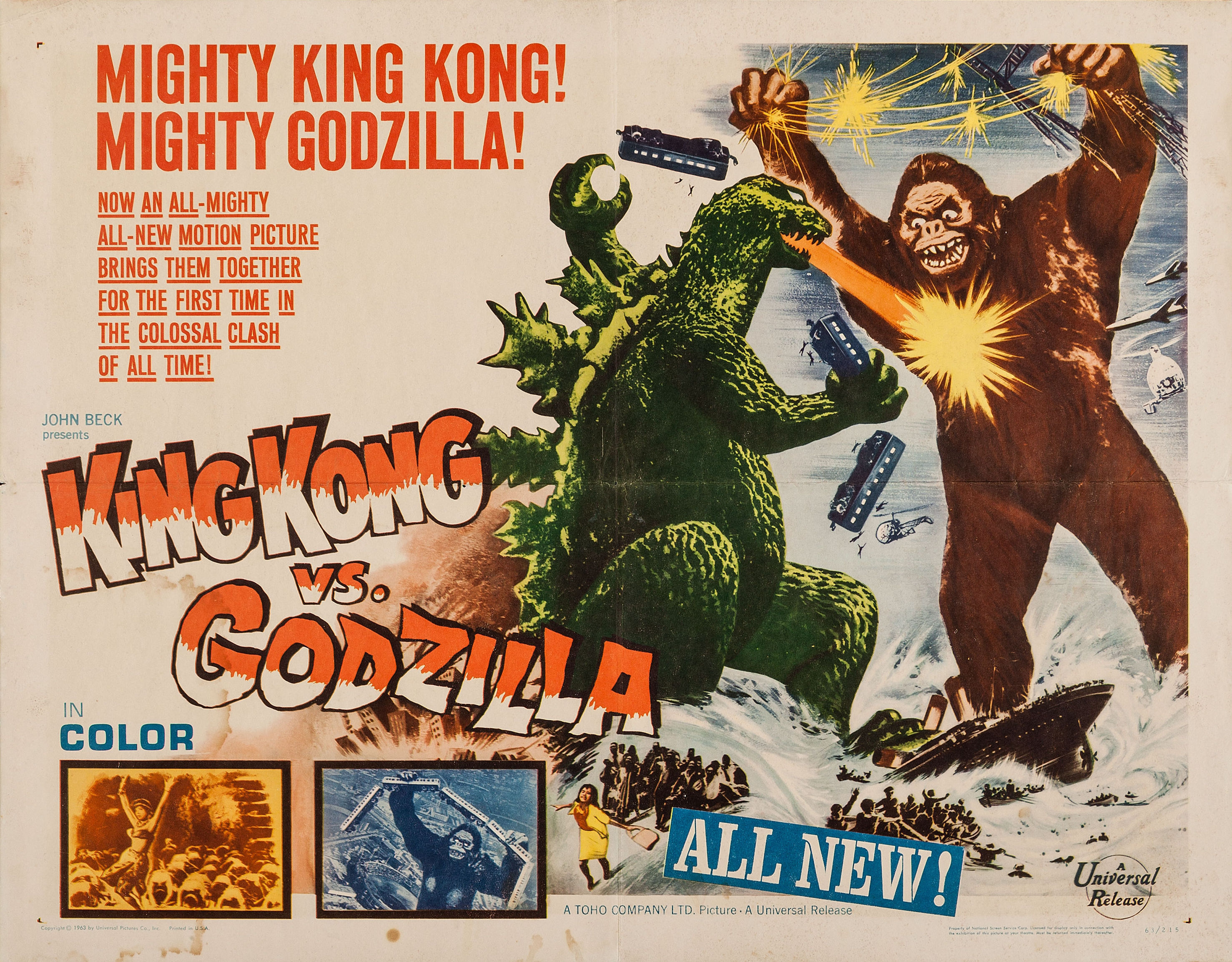
Trivia question: Who ends up the winner of the American cut of the 1962 mega matchup movie King Kong vs Godzilla?
Answer: King Kong
However who wins in the Japanese cut of King Kong vs Godzilla?
Answer: King Kong.
Why is the answer to both questions the same? Well, because and please listen closely THE ENDING IS THE FUCKING SAME IN JAPAN AS IT IS IN AMERICA, KING KONG IS VICTORIOUS IN BOTH THE AMERICAN CUT AND THE JAPANESE CUT!!!!!
You see there is an urban legend surrounding this movie, started in the magazines “Spaceman” and “Famous Monsters of Filmland” that claims the studio Toho filmed two alternative endings. One had King Kong emerging victorious and swimming off into the sunset (how Godzilla ended up taking the fight into his element the water and then losing leads me to think the fix was in) which was made for American audiences and another version seeing Godzilla winning which would be shown only in Japan. Which made no sense anyway as Godzilla at the time was a clear villain and was many films away from his gradual turn into a lovable hero.
This myth preserved for decades and was accepted as a quirky little story to be repeated in serious newspapers and media which don’t have the respect for nerd culture to fact check their stories. But to my repeated chargrim and rage the double ending myth is still trolled out by people who really should know better. The fine folks on the Collider channel have mentioned how there was two endings without any correction from anyone on the panel. Shockingly I was listening to the excellent cult movie podcast Radiodrome (which really should know better) and they talked about how the Japanese ending where Godzilla wins is never shown or released in the US. Well, because it doesn’t exist and if you ever hear anyone who says they have seen this ending (and some people claim to have) you can call them a fucking liar.
And if you ever are playing Trivial Pursuit (which I never would because I hate trivia quizzes and I despise gatherings) and you get the question “Who wins the Japanese version of King Kong vs Godzilla?” you are allowed to say King Kong and raise an objection at the offical answer of Godzilla. Because yes that question does appear in certain editions of Trivial Pursuit and it is an incorrect answer.
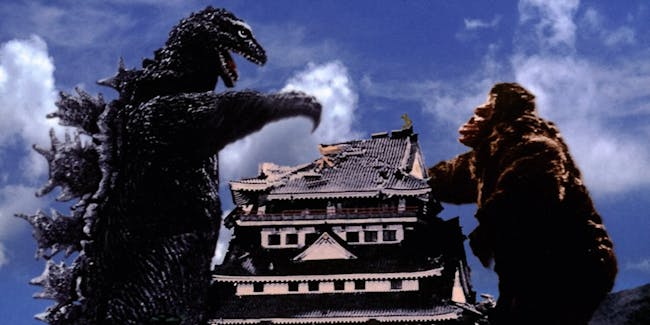
Now I’ve got that off my chest: King Kong vs Godzilla came about originally when the man responsible for the effects in the original King Kong (Willis H O’Brien) came up with a project for a King Kong vs Frankenstein movie. Studios in America were uninterested and so O’Brien took his idea to Japan and monster movie studio Toho who wanted to make a King Kong film. Toho however thought this was the perfect way to relaunch their Godzilla movies as well as providing the mouth watering clash of Japan and the USA’s iconic monsters and so replaced Frankenstein with their giant green Lizard.
The 1933 King Kong was one of my favourite movies as a kid and having seen the American Raymond Burr cut of the original 1954 Godzilla, when I heard there was a movie where these two giants faced off I was drooling at how great this film would be. My imagination created scenes in my head of the stop motion King Kong and black and white Godzilla locked in combat in an orgy of carnage and destruction. with Years passed and the film never showed up on television and remained missing from the shelves of the many video rental stores I was a member of in the mid 80s and it’s allusiveness made me suspect the film didn’t even exist.
My expectations for the film diminished as I got older and saw some of the Japanese Godzilla films on late night Channel Four and realised what they were actually like. Now I love Godzilla, I have a real affection for the Japanese monster movie genre as a whole, but a lot of them are tough to sit through. The actual monster stuff is great, I love watching Godzilla rampaging through Tokyo film after film and I could watch those (sometimes ridiculous) pro wrestling style match ups with other monsters. Hell, Godzilla doing the highland jig in “Attack of the Astromonsters” is right up there with the burning sledge in Citizen Kane as iconic several second moments in cinema history.
The trouble is a lot of the Godzilla movies are bogged down with really bad human stories, especially when they got increasingly lighter in tone in the 60s and 70s and these plots I generally regarded as fast forward fodder so I could get to the good monster stuff. Those elements King Kong vs Godzilla are probably not as bad as they would later become, but as a whole film comes nowhere close to the original black and white movie Godzilla, Godzilla 1984 (and the following ten years of the Heisei period) or the recent Shin Godzilla all of which are more worthy viewing for anyone curious about the cultural Japanese icon.
King Kong vs Godzilla is like many of the Godzilla films of the 60’s and 70’s. Bad or cheesy writing and acting depending on your tastes, but really fun fight scenes. It’s got the Godzilla fans know and love but in no way is the classic King Kong on that screen as Toho when they saw the costs associated with stop motion effects went “bollocks to that,” knowing how much cheaper it is to put a guy in a gorilla suit.
And boy did they find the cheapest, creepily looking costume to represent King Kong. Which again is further proof against the duel endings mix, because when you look at how they presented King Kong it’s clear they didn’t give a shit about catering this film to American audiences in any way.
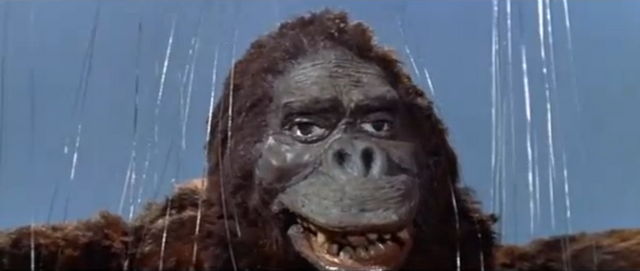
Godzilla will return in “Couchzone Movie Club 2000-2004”
By the way did you know in Ireland the broadcast of the Conor Mcgregor vs Floyd Mayweather fight had an ending where Conor won by KO? True story.
That’s all
Dazza

